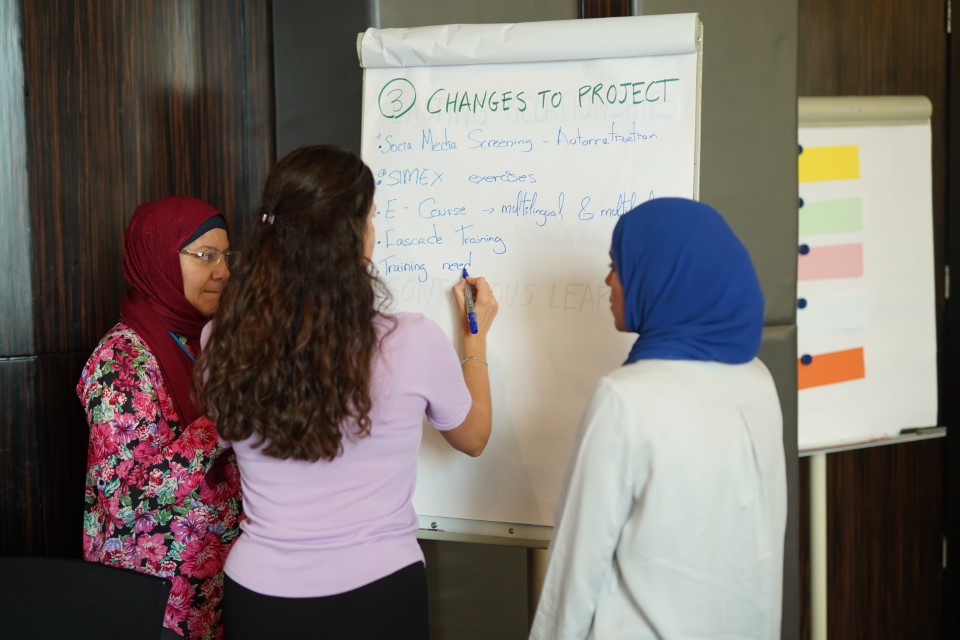
FAQs
- Public health employers – to guide hiring and performance evaluation and implement training.
- Regulators and licensing bodies – to set standards.
- Educators and trainers – to develop or update training programmes.
- Public Health Intelligence (PHI) professionals – to assess and improve their skills and update their training.
- Policymakers – to support workforce planning and public health strategies.
Yes, the PHI Competency Framework and Curriculum are specifically designed to be adaptable to resource-limited settings through:
- Modular Design – The Curriculum can be tailored to local needs, allowing selective use of content based on available resources and workforce capacity.
- Flexible Delivery – Training can be conducted in-person, online, or hybrid formats, making it accessible even with limited infrastructure.
- Customisable Content – Organisations can adjust learning objectives and courses to suit local context, priorities, and language.
- Focus on Core Competencies – Emphasises essential, practical skills that can be applied regardless of setting complexity.
- Support for All Levels – Suitable for both new and experienced PHI staff, helping build capacity gradually in settings with limited expertise.
- Scope: PHI takes an all-hazards approach, addressing infectious diseases as well as environmental, chemical, radiological, and other threats, and integrates One Health principles - recognizing the interconnection between people, animals, and the environment. Field epidemiology training traditionally focuses on infectious disease surveillance and outbreak response, although there are programmes that expand into all-hazards and One-Health.
- Focus: PHI emphasises ongoing data integration, verification, interpretation, and synthesis to produce actionable intelligence for timely decision-making, going beyond episodic field data collection or outbreak investigation.
- Multisectoral: PHI is inherently multisectoral, requiring collaboration across human health, animal health, environmental, and other sectors to understand and respond to complex health threats. Some field epidemiology training programmes do involve multisectoral collaboration, especially in zoonoses or through One Health tracks, but may not always be embedded as a core feature.
- Competencies: The PHI curriculum includes functional competencies such as communication and ethics, which are essential for navigating real-world complexity and working across disciplines. Field epidemiology training programmes are increasingly including these soft skills though.
- Flexibility: The PHI Curriculum is modular and adaptable, enabling training for a wide range of roles, from frontline responders to analysts and decision-makers, and can be tailored by context, experience level, and institutional need. Many field epidemiology training programmes are standardised, often full-time, cohort-based, and tied to a specific career path.

